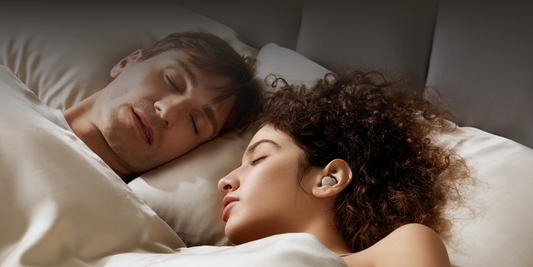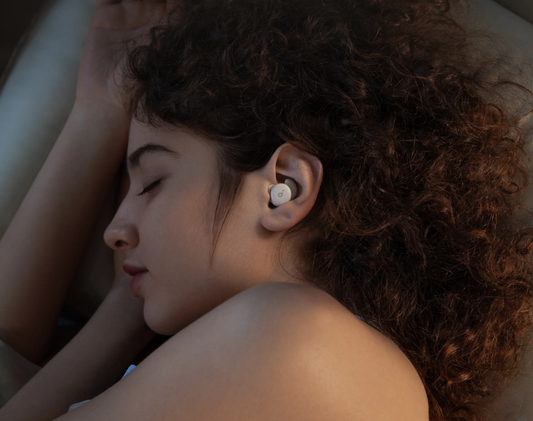Earbuds Blog

How to Sleep with Someone Who Snores: A Compreh...
Do you find yourself tossing and turning at night because of the loud snoring coming from the other side of the bed? You're not alone. Millions of people are kept...
How to Sleep with Someone Who Snores: A Compreh...
Do you find yourself tossing and turning at night because of the loud snoring coming from the other side of the bed? You're not alone. Millions of people are kept...

Having Trouble Falling Asleep? Do Noise-Canceli...
Falling asleep should be one of the most natural things, yet for many, it’s a nightly battle. Traffic lingers in the streets below; your significant other snores too loudly, or...
Having Trouble Falling Asleep? Do Noise-Canceli...
Falling asleep should be one of the most natural things, yet for many, it’s a nightly battle. Traffic lingers in the streets below; your significant other snores too loudly, or...

What Kinds of Noise Can Affect Sleep? How Can E...
Having a good sleep is among the things that matter for health, productivity, and mood. These days, loud noises are certainly unwanted disturbances that get in the way of staying...
What Kinds of Noise Can Affect Sleep? How Can E...
Having a good sleep is among the things that matter for health, productivity, and mood. These days, loud noises are certainly unwanted disturbances that get in the way of staying...

Great Sound Can't Wait: 4 soundcore earbuds to ...
Why Choose soundcore Earbuds This Prime Day? When it comes to true wireless sound, not all earbuds are created equal. At soundcore, we combine audiophile-grade tuning, cutting-edge noise cancellation, and...
Great Sound Can't Wait: 4 soundcore earbuds to ...
Why Choose soundcore Earbuds This Prime Day? When it comes to true wireless sound, not all earbuds are created equal. At soundcore, we combine audiophile-grade tuning, cutting-edge noise cancellation, and...

Father's Day Gift Guide: Let Him Hear Your Care
Every Father’s Day, we ask ourselves, “What’s the perfect gift for dad?” He always says he has everything he needs, but deep down, we know what he truly wants is...
Father's Day Gift Guide: Let Him Hear Your Care
Every Father’s Day, we ask ourselves, “What’s the perfect gift for dad?” He always says he has everything he needs, but deep down, we know what he truly wants is...

How Anker soundcore Uses Azure AI Speech for Se...
“We’re excited to be part of Microsoft Build and to demonstrate what’s possible when AI meets every day tech. Built on deep technical integration and shared innovation goals, we’re able...
How Anker soundcore Uses Azure AI Speech for Se...
“We’re excited to be part of Microsoft Build and to demonstrate what’s possible when AI meets every day tech. Built on deep technical integration and shared innovation goals, we’re able...